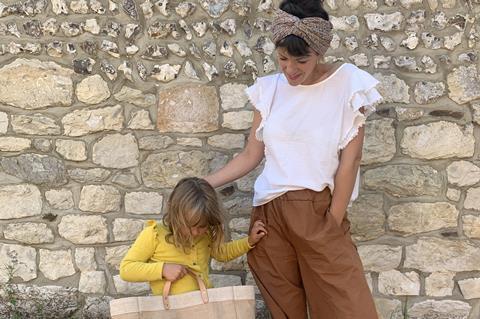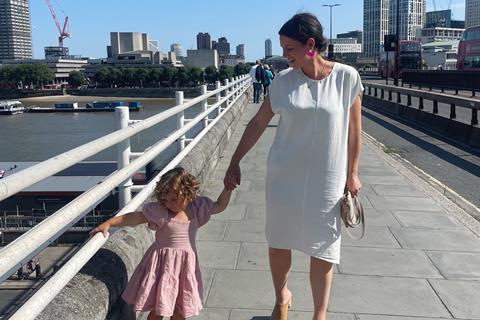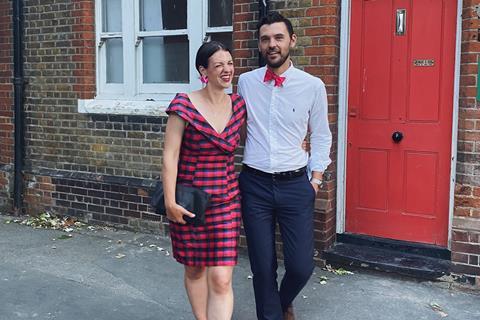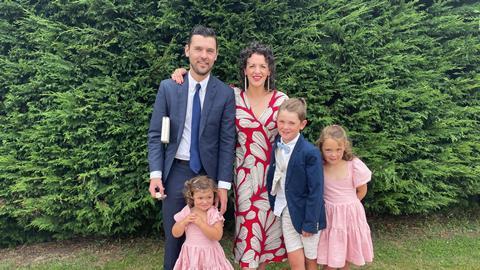Kezia Neusch is the creator of The Whole Home, an online space where she explores attainable low-impact living. Should all Christians be doing this?
The questions started when Kezia was twelve years old, biting into a bar of chocolate. It said ‘Fairtrade’ on the wrapper. “If this chocolate is fairtrade, what about the other chocolate I eat?” she asked her dad. “What about the chocolate not deemed fair? And who is it unfair to?” In the conversation that followed, Kezia realised for the first time that food has a story before it arrives in our hands. While the food may taste good to her, the journey may not have been fair to others. She made a commitment to her dad – and her dad to her – that they would only eat chocolate if they knew its story and could be sure that no one had been harmed in the making of it. That was just the starting point.
Who is my neighbour in the supply chain? I am inextricably linked to them by the food in my hand
“I started by making small changes,” Kezia explains, “changes that were manageable and not too overwhelming; changes I could celebrate and build on.” She asked questions about meat and other animal products, slowly and consciously adopting a vegetarian, then vegan, diet as a teenager. But Kezia knew that any small change she made would be laborious and unsustainable without clear motivation; impossible without a ‘why’ she felt passionate about.
“It was always about ethics for me. When I was a teenager there wasn’t a public conversation about the environmental impact of meat – that was something that came later. At that point in my life, I was concerned about how animals and fellow humans were being treated in the process of making the food I was choosing to eat.” This ethical response to food seemed inextricable from the faith she had inherited and embraced as a child. “It seemed core to the gospel. Am I caring for my neighbour?” she asked, making the point that because we don’t see the people involved in the supply chains – those tending to cocoa plantations or watering our avocados – it’s easy to not think of them. “But who is my neighbour in the supply chain? I am inextricably linked to them by the food in my hand. How can I not care for them?”

A voice for change
This was a very personal journey for Kezia. She never intended to take it online. “Some may describe it as a gut feeling. For me, I knew it was a God feeling.” Newly married to an American from a hunting family in Texas, Kezia began documenting their food – out of intrigue, not judgement – observing their choices and pondering the reasons behind them. “On the morning of our six-month anniversary, I made an oat-based breakfast topped with banana slices cut in the shape of hearts – because I had time for that kind of thing back then! I took a picture and felt compelled to post it online, something I wouldn’t ordinarily do.” Kezia followed this instinct for a week, posting her meals on Instagram, commenting on the consciously chosen ingredients. “I soon grew bored of this and stopped for a while. But I couldn’t shake the feeling that it was something I should be doing.”
This process of thinking ethically and consciously about clothes has freed me to wear what I like
So, she continued to post, expanding from documenting food choices to considering ethical clothing. Pregnant with her first child, excitedly selecting tiny clothes, Kezia wondered what made some organic and others not, leading to a barrage of familiar questions: “What is the story behind the clothes I am choosing?”, “Who was involved in their creation?”, “At what cost?” Kezia wondered: was she enjoying certain clothing at the expense of other people?
Casual posting of her personal journey towards low-impact living developed into ‘The Whole Home’, an intentional online space to support others in their own exploration of becoming conscious consumers. Cultivating this online world is a calling for Kezia, as well as a source of income for her family, and something she’s decided to persevere with despite challenges. “It’s increasingly difficult to speak into the low-impact conversation from the online world,” she explains, describing how interconnected it is with consumerism and how she’s had to be very intentional about maintaining integrity. “But as long as there is contrary content out there – promoting fast fashion – then I feel compelled to keep going and be a voice for change.”

Conscious consumerism on a budget
Kezia wants people to know that low-impact living is possible, and it’s possible on a budget. “It’s tempting to assume that conscious consumerism is an elite thing; reserved for those who can afford ethical brands and organic food. But this is not the case. We feed our family of five on a lower-than-average food budget, still sourcing our food carefully – like being part of a local veg box scheme – but being really creative about how we use it and careful about waste. It’s amazing how far one veg box can stretch!” Kezia explains that a significant amount of food from households ends up in landfill. Acknowledging this and taking small actions to reduce the amount of food we waste, through planning ahead and only buying what we need, is a simple, significant – and free – thing that we can do to change our carbon footprint.
Alongside being careful about food waste, Kezia recommends identifying one item you can source more locally or substitute with something else. “Recently we’ve stopped buying bananas, opting for local, seasonal fruit instead. I thought it would be really hard, but it didn’t take long for it to feel normal.”
Beyond food, Kezia has discovered that shopping second hand for clothes and other items they need is an affordable, sustainable and liberating way to maintain a low-impact lifestyle. “The British Fashion Council states that there are enough clothes on the planet for six generations. Why are we producing more when so much is being wasted?” Kezia sources as much as possible from charity shops and though second-hand apps, such as Vinted, recently saving hundreds of pounds on summer wedding outfits by opting for old, second-hand and homemade options.
“It brings me so much joy, being able to go to a wedding in outfits we love wearing and also believe in. This process of thinking ethically and consciously about clothes has freed me to wear what I like. I can’t believe I was conned for 30-something years into thinking I had to dress a certain way! I’m no longer indirectly told what to wear by what is in fashion on the rails in high street stores; instead, I have personal confidence in my style.”
Choosing a budget-friendly ethical option has many hidden joys. On her children’s party invitations, Kezia suggests that if guests want to bring a gift they pass on a previously loved toy from their own home: “With the cost of living so high, friends often welcome this suggestion.” Kezia’s children are on board with this approach, equally enjoying second-hand items and revelling in how far their pocket money can stretch – only £10 for nearly-new Nike trainers on Vinted! “We always talk with them about the choices we’re making so that we’re in this as a family. They aren’t resistant; if anything, I think they’ll be asking us in the future why we didn’t do more.”

Keeping it simple and less judgy
Kezia acknowledges that amid the joy and satisfaction of living low-impact, it can be hard. “I feel that it’s important to highlight that we hold certain values, but it can feel uncomfortable to speak out.” Kezia frequently finds herself having to make alternative, often tricky decisions, such as choosing a plain black second-hand T-shirt for her daughter to wear to her dance recital, rather than buying a printed T-shirt from the dance school. “I couldn’t find out where the T-shirts we were being asked to buy had come from and didn’t want my child dancing in a T-shirt that could have negatively impacted another child who made it.” Kezia acknowledges that these decisions can feel hard to communicate in a non-judgemental way, but that when we approach such situations gently and sensitively they can open up thought-provoking conversations.
“Start with one thing and know why,” Kezia encourages. “Don’t change everything at once; this can feel overwhelming and unsustainable. Begin by being conscious of one thing. If you find charity shopping too much, don’t start there! Choose something within your grasp and be clear on your motivation.” Kezia’s own inspiration has come from a thousand different places. She acknowledges that it can be hard to know where to look, and that research is always changing, but suggests Consumed by Aja Barber (published by Brazen) as a good place to start.
“It’s not about ticking boxes,” Kezia reminds us. “Be kind to yourself as you make small changes and remember that it’s about a broader, holistic approach to ethics and environmental impact, not about perfection or how it looks to others. It’s about authenticity and rediscovering your role as a consumer in a God-given way.”
To find out more about Kezia’s lifestyle, and to get some tips on recipes and food budgeting, go to thewholehome.co.uk




























No comments yet